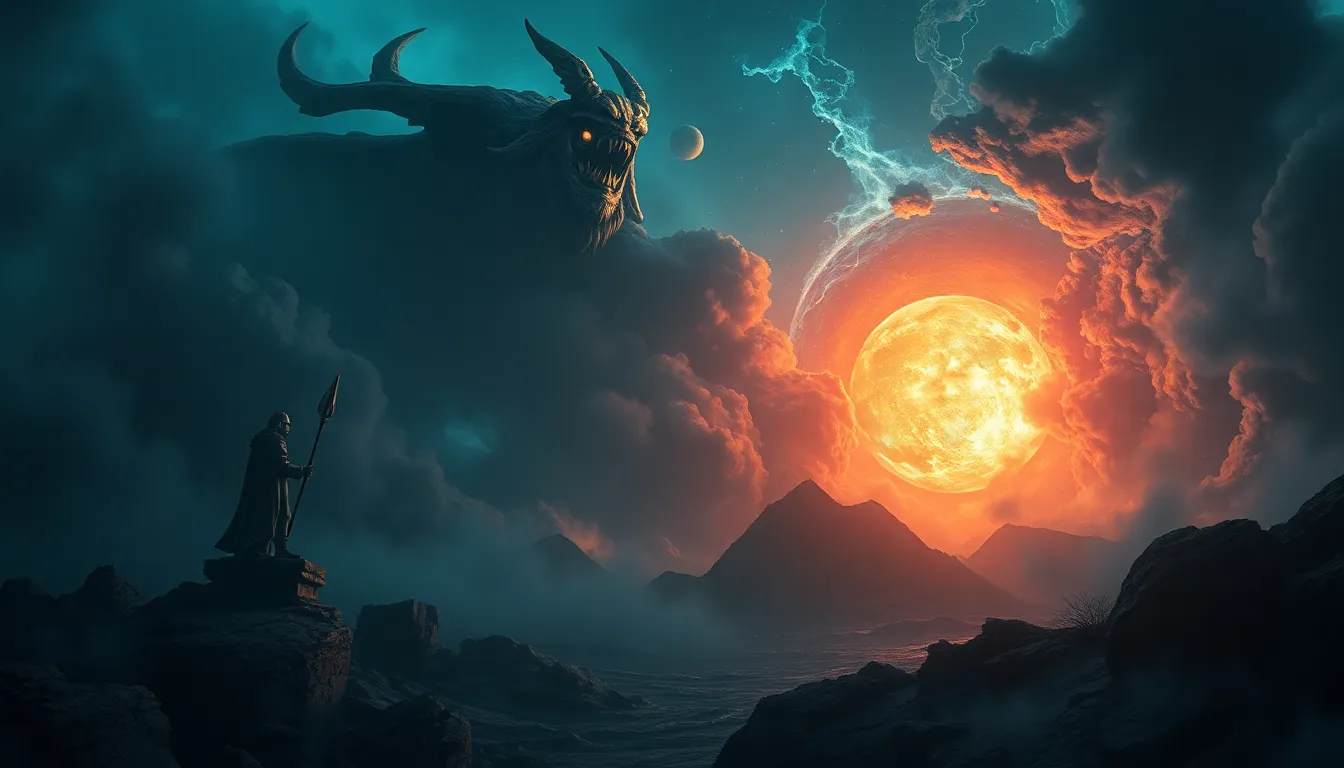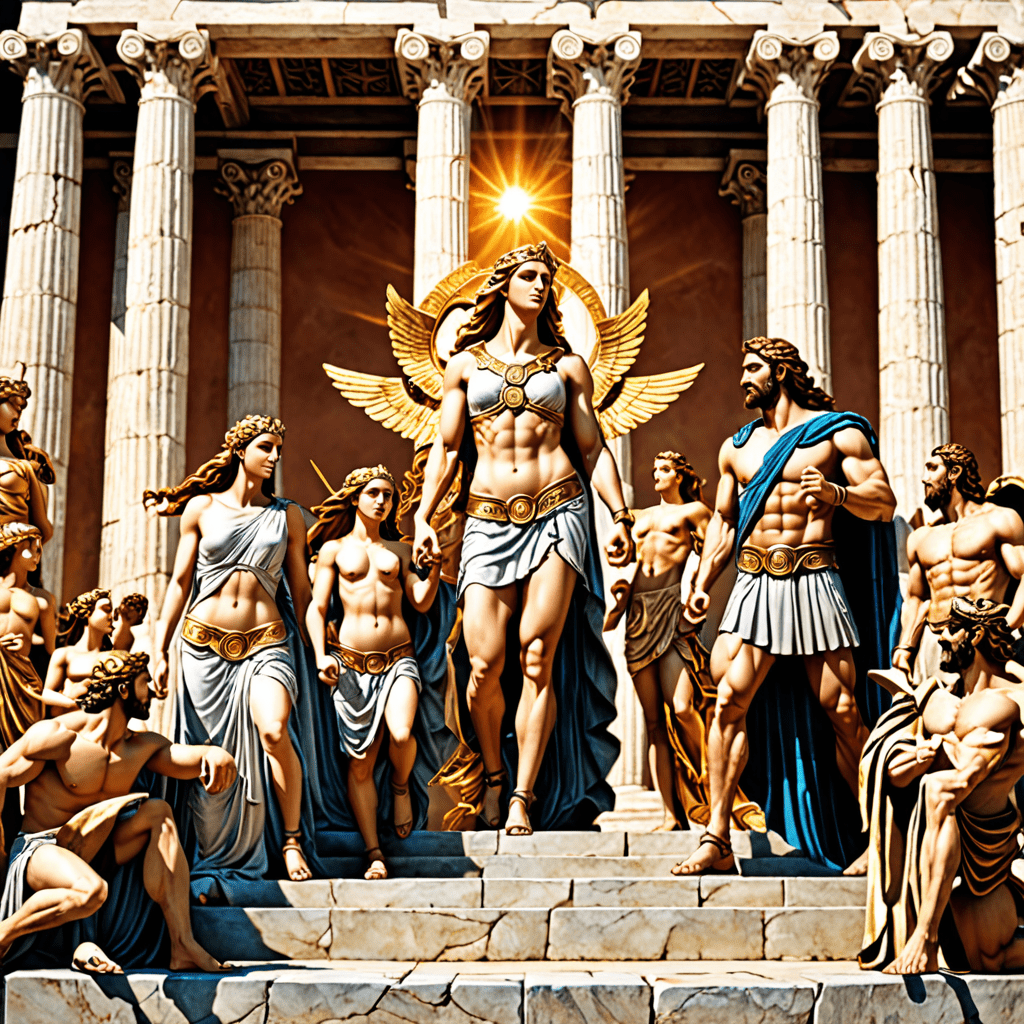Creation Myths: The Stories That Define Our Existence
I. Introduction to Creation Myths
Creation myths are foundational narratives that explain the origins of the universe, humanity, and life itself. These stories are integral to the cultural and spiritual fabric of societies around the world, serving as a means to understand existence and humanity’s place within it.
The importance of creation myths extends beyond mere storytelling; they provide answers to profound existential questions, shaping ethical frameworks and cultural identities. In this article, we will explore the purpose of creation myths, common themes found within them, notable examples from various cultures, and their relevance in contemporary society.
II. The Purpose of Creation Myths
Creation myths serve several essential functions within cultures:
- Existential Questions: They address fundamental questions about existence, such as “Where do we come from?” and “Why are we here?”
- Cultural Significance: These narratives often play a crucial role in the social and moral frameworks of societies, influencing laws, customs, and traditions.
- Psychological Impact: Creation myths can provide comfort and a sense of belonging, allowing individuals to relate to larger narratives that define their culture.
III. Common Themes in Creation Myths
Many creation myths, despite their cultural differences, share common themes:
- Chaos and Order: Most myths begin with a state of chaos, which is then transformed into order through divine intervention or natural processes.
- Creation and Destruction: Many narratives highlight the duality of creation, showcasing how the act of creating often involves destruction or sacrifice.
- Divine Beings: Supernatural forces or deities frequently play a central role in the creation process, symbolizing power, creativity, and the divine.
IV. Notable Creation Myths from Around the World
Across cultures, there are numerous captivating creation myths:
- The Genesis Creation Narrative (Judeo-Christian): This biblical account describes God creating the world in six days, culminating in the creation of humanity on the sixth day.
- The Enuma Elish (Babylonian): This ancient narrative recounts the creation of the world from the body of the slain goddess Tiamat, symbolizing the triumph of order over chaos.
- The Popol Vuh (Mayan): This sacred book tells the story of the creation of humanity from maize by the gods, emphasizing the connection between the people and the earth.
- The Aboriginal Dreamtime Stories (Australian Indigenous): These stories describe the creation of the land, animals, and people by ancestral beings, reflecting a deep connection to the environment.
- The Hindu Cosmology (Rigveda): This ancient text speaks of the universe’s creation through a cosmic sacrifice, highlighting themes of interconnectedness and cyclic existence.
V. Comparative Analysis of Creation Myths
When examining creation myths across cultures, we can identify both similarities and differences:
- Similarities: Most myths feature a transition from chaos to order, the involvement of divine beings, and the establishment of a moral or ethical framework.
- Differences: Cultural context, environmental factors, and historical experiences shape the specifics of each myth, leading to unique interpretations and narratives.
- Geographical Influence: The natural environment often informs the themes and characters of creation myths, with agricultural societies emphasizing fertility and hunter-gatherer communities focusing on survival.
VI. Creation Myths and Science
The relationship between creation myths and scientific explanations is complex:
- Interplay of Myth and Science: While science seeks empirical answers, myths provide narrative frameworks that help people understand their existence.
- Big Bang Theory vs. Creation Myths: The Big Bang Theory offers a scientific explanation for the universe’s origin, contrasting with the metaphorical and spiritual insights provided by myths.
- Narrative Framework: Myths help contextualize scientific discoveries, offering meaning and significance to human existence in ways that pure science may not.
VII. Modern Interpretations and Adaptations
Creation myths continue to resonate in contemporary society:
- Retellings in Literature: Many authors draw on ancient myths to create modern narratives, exploring themes of identity, existence, and morality.
- Popular Media: Films, television shows, and art often reinterpret creation myths, making them accessible to broader audiences and encouraging dialogue about their significance.
- Modern Spirituality: Creation myths influence contemporary spiritual practices, helping individuals connect with their cultural heritage and explore existential questions.
VIII. The Role of Creation Myths in Identity Formation
Creation myths play a crucial role in shaping individual and collective identities:
- Cultural Identity: Myths help define cultural heritage, instilling a sense of belonging and shared history among community members.
- Personal Identity: Individuals often find personal meaning in creation stories, which can influence their beliefs and values throughout life.
- Social Cohesion: Myths can function as tools for moral guidance, reinforcing social norms and fostering community bonds.
IX. Criticism and Challenges of Creation Myths
Despite their significance, creation myths face criticism and challenges:
- Skepticism: Some view creation myths as outdated or unscientific, questioning their validity in light of modern knowledge.
- Tension with Empirical Evidence: The conflict between mythological narratives and scientific evidence can lead to debates about their relevance.
- Colonization and Cultural Appropriation: The interpretation of myths can be influenced by colonial histories, leading to misrepresentations and misunderstandings of indigenous narratives.
X. Conclusion: The Enduring Legacy of Creation Myths
Creation myths remain powerful narratives that shape our understanding of existence, identity, and cultural heritage. They provide insight into the human experience and continue to resonate across generations and cultures. As we navigate a rapidly changing world, the lessons and themes found within these stories remain relevant, inviting us to reflect on our origins, purpose, and the interconnectedness of all life.




